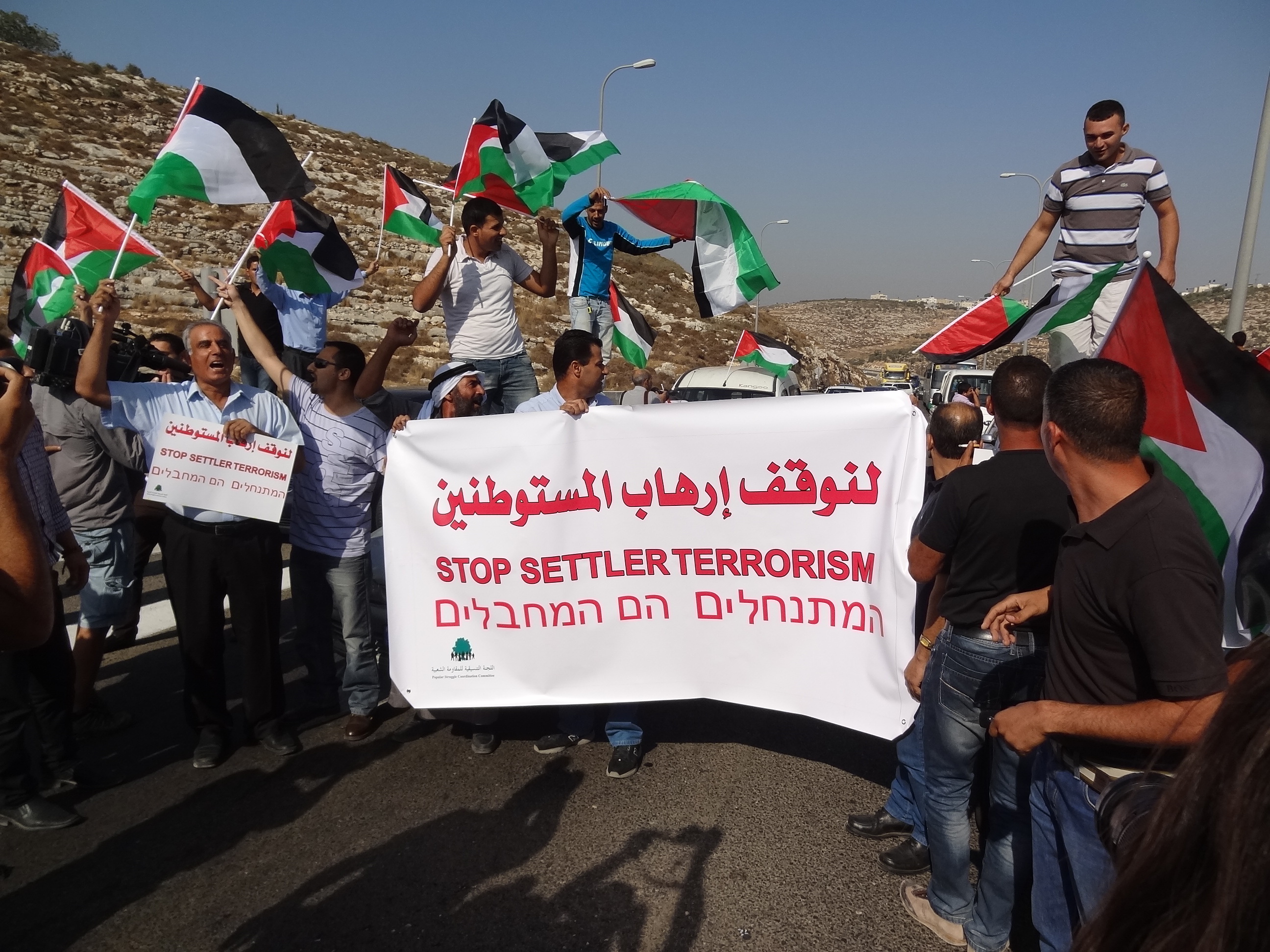About 50 Palestinians joined by a number of international activists
blocked today the Apartheid Road 443 (known as Modi’in, which passes on
West Bank lands, connecting Tel Aviv to Jerusalem). The road was
blocked for about 30 minutes to Israeli and settler traffic.
Soldiers and Border Police who arrived on the scene physically attacked
protestors and journalists, and used pepper spray and sound bombs. One
Palestinian protestor was detained and beaten. He was released an hour
later.
This direct action was organized in light of the increasing settler
terrorism against Palestinians and their properties during the current
olive harvest season, including the torching, uprooting or setting fire
to olive trees, the theft of harvested olives, and the attacking of
Palestinian families while picking olives.
Mohamad Khatib, of the PSCC emphasized, “We organized this action today
to stress that as long as Palestinians suffer under the daily practices
of the occupation and settler terror, Israeli daily life can’t continue
on as normal.”

|
Khatib added, “We call on people of
conscience around the world to
support the Palestinian struggle by engaging in the Boycott, Divestment
and Sanctions campaign against Israel, and to take serious actions to
boycott companies that are complicit with the Israeli apartheid, such
as Veolia, which operates transportation routes that use Road 443,
which is built on Palestinian lands.”

Background, Road to nowhere: During the occupation of the West Bank in
June 1967, the Israeli army destroyed the villages of Yalu, Beit Nuba
and Amuasse in the Latrun enclave."Canada Park" and a number of
settlements were built on their lands.'
Most of the residents of these three displaced villages currently live
in villages near Highway 443, such as Beit Liqya, Beit Sira and Beit
Ur. In the eighties, thousands of acres were confiscated by Israel
along the road, claiming that the road will serve as the main traffic
artery for these villages to Ramallah.
However, the road has been closed for years to Palestinian vehicles.
Following the High Court ruling on Route 443, a small section of the
road was opened last week for Palestinian traffic, but is still nearly
useless for the villagers, as access to Ramallah from it is prohibited,
turning it into a highway to nowhere for Palestinians.
|

